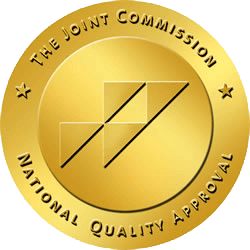Video games are popular, especially among teens and adolescents. Online gaming no longer requires expensive game systems. Thus, it is more affordable and accessible than ever to play video games. In fact, 72% of American households play video games. While most play video games on a recreational basis, 4% of people spend 50 hours or more each week playing video games. While many people associate addiction with drugs and alcohol, certain behaviors can cause psychological dependence. Since video games can cause a behavioral addiction, the harm of video game addiction can cause similar symptoms as alcohol dependency or substance abuse disorders.
The Harm of Video Game Addiction
Behavioral addictions create psychological dependency, which can involve behaviors like:
- Video games
- Shopping
- Social media
- Sex
- Gambling
When you develop a psychological addiction to video games, you can make playing video games the most important part of your life. Your brain’s pleasure and reward center connect video games with happiness and pleasure, as playing video games cause your brain to release a pleasurable rush of neurotransmitters. This means that your brain encourages you to continue playing video games, even if it interferes with other areas of your life. One harm of video game addiction is that it can cause you to neglect your responsibilities, such as your schoolwork. Another harm of video game addiction is that it can cause you to lose interest in your social life and hobbies. When this happens, your friends may distance themselves from you as you choose to spend all of your free time playing video games. Isolation is another potential harm of video game addiction, as it can cause damage to your social and familial relationships. Ignoring obligations and responsibilities is a common harm of video game addiction that can disrupt your academic and work performance.
How Video Game Addiction is Treated
Like other psychological addictions, video game addiction requires treatment so your brain’s pleasure and reward center can heal. During treatment, recognizing and identifying your triggers is an important part of developing a strong relapse prevention plan. Since accessing video games is easier than ever, as most teenagers own smartphones, your recovery is filled with potential triggers. Anything that you can play a video game on can make you want to start gaming again, which can make relapsing a major threat to your recovery. Evidence-based treatments, which are therapies that have been proven to work on past patients, help you change negative thinking patterns and improve your problem-solving skills. Finding healthy ways to cope with cravings is another important part of video game addiction treatment. Negative emotions, thoughts, and stressors are common during addiction and recovery. If you have a co-occurring condition (having a mental health and substance abuse disorder or addiction), treatment is especially helpful. Psychological and physical addictions can both worsen mental health disorder symptoms and create them. Therefore, you need to treat both during recovery. Another benefit of completing video game addiction treatment is that you can include your family members and loved ones in your recovery plan. Making sure you have a strong and healthy support network during recovery is essential. Thus, it’s a good idea to have your loved ones participate in your treatment.
Finding Help at Destinations for Teens
The harm of video game addiction can damage your personal life, mental health, and relationships. When you suffer from a video game addiction, early treatment is essential to your recovery. Because psychological and behavioral addictions are chronic and progressive diseases, finding help is necessary for your recovery. To find out more about our teen substance abuse and video game addiction programs, call us today at 877.466.0620. Sources: Gaming Addiciton, Geneus, https://www.geneushealth.com/gaming-addiction-texas


